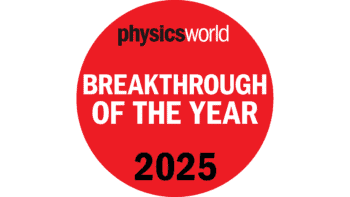Leonie Mueck, Carmen Palacios-Berraquero and Divya M Persaud argue that the term “quantum supremacy” should be replaced in favour of one that is more responsible

In 2012 the theoretical physicist John Preskill from the California Institute of Technology coined the term “quantum supremacy”. It was introduced to represent the ability of quantum computers to solve problems faster than conventional supercomputers. The term quickly caught on and, after years of research in the field by scientists at universities and companies, Google in October 2019 announced it had achieved the breakthrough. The result sparked optimism about the future of quantum computing, but something was missing in the debate that followed, namely the uncomfortable association of the term with “white supremacy”.
We are by no means the first to point out how problematic quantum supremacy is as a term. The physicist Karoline Wiesner at the University of Bristol, for example, outlined the discomfort in 2017 in a widely discussed article (arXiv:1705.06768). The word “supremacy” is often used to signify an ideology in which one social group dominates another and, as an analysis of language corpora shows, is frequently used in conjunction with the adjective “white”. The history of white supremacy, from the beginnings of scientific racism to apartheid in South Africa, is long. Due to political events in the past few years the ideology has spread throughout Europe, the US and other parts of the world, exacerbating discomfort with the term in the scientific community.
Discrimination and harassment in science due to race or gender is well documented. As minority groups are dealing with the ramifications of their marginalization, many are not afforded the privilege to be able to focus on just doing science. The fact that the term “quantum supremacy” is still in use is symptomatic of the composition and culture of the community. In quantum technologies, only 3% of US physics majors are being earned by African Americans, compared with approximately 15% of the undergraduate population – a statistic seen in other areas. Indeed, it is hard to imagine that a predominantly black and female group of scientists would have coined and stuck to this term – unless they rightly sought to reclaim the term, something that cannot be done by the current demographic.
Language matters and using a problematic term while ignoring its historical context is not unique to quantum technologies. For example, in 2018 the temporary naming of Kuiper belt object MU69 “Ultima Thule” evoked Nazi imagery. MU69 was ultimately named 486958 Arrokoth by the International Astronomical Union in partnership with the Pamunkey Native American tribe to honour the indigenous Powhatan people. This served as an example of science successfully bridging communities.
In 2018 members in the artificial intelligence community successfully campaigned to change the acronym of the Neural Information Processing Systems conference from NIPS to NeurIPS. The abbreviation NIPS provoked a series of sexist jokes, events and conversations that made many women feel uncomfortable. The revision stimulated important progress – from conference codes of conduct to community-led initiatives to support and encourage under-represented demographics, as well as the increased visibility of certain scientists – that helped the wellbeing of everyone in the field.
Quantum responsibility
We hope that switching to an alternative term for “quantum supremacy” will lead to similarly positive outcomes. The global quantum discipline coming together for change sends a very strong message of support for minoritized identities and that it will foster a sense of community in the field. Indeed, the discussion about quantum supremacy is an opportunity for us to reflect on creating a quantum-technology community that is more welcoming to marginalized groups, more ethically aware and more socially responsible. If the term quantum supremacy makes a single individual feel marginalized, then it is worth changing it. With the increasing commercialization of quantum technologies, the concern that the tech culture’s enormous problem with diversity and inclusion will spill over is looming large. The community cannot afford to mute or lose minoritized voices.
It is now 2020 and the world needs nuance, values and accountability. We must question how Western science and technology demand objective rights to both words and land. While the use of problematic language can seem innocuous, it is not by chance that it is acceptable and normalized. Scientists and technologists must take responsibility for the consequences of what they find, build and communicate.
We want to foster a more responsible community that can examine itself every step of the way and that can be held accountable – from students through to directors and from research groups and institutes to start-ups and companies. We need to follow the best practices for hiring a diverse team or organizing an inclusive conference, engage with researchers in the humanities who study the impact of technologies and support underrepresented groups to join the field.
When Preskill coined the term, he considered various alternatives. One that he rejected was “quantum advantage”, noting that it “lacks the punch” of quantum supremacy and doesn’t represent the vast increase in speeds. We disagree, and encourage everyone to replace quantum supremacy with quantum advantage. This is not only an adequate way to describe the gain that quantum computers offer but will also help quantum technologies enter the public arena truly as the future of technology.



